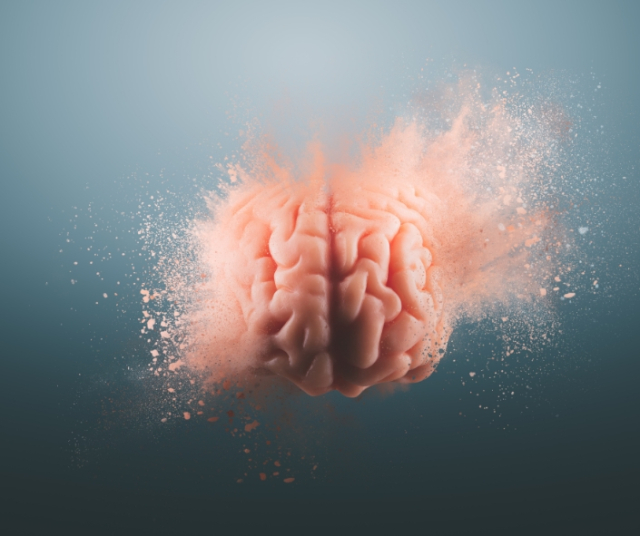Dreams, mysterious phenomena that unfold in the realm of the imagination while we sleep, have intrigued humanity for centuries. Although science has not yet completely deciphered the enigma of dreams, it has been established that the brain, with its complex neural networks and chemical processes, plays a fundamental role in the production of these dream experiences. In this article, we will explore the intricate relationship between the brain and dreams, diving into the neurobiological processes that bring this fascinating phenomenon to life.
The machinery of sleep: The Brain as a Dream Scene.
The brain, that amazing and enigmatic organ, stands as the epicenter of dream production. Although more research is needed to fully understand the mysteries of the mind during sleep, science has revealed some fascinating clues about the brain's role in this process.
The sleep cycle and dream stages:
Sleep is not a uniform state, but a complex process that is divided into several stages. The sleep cycle is made up of two main phases: REM (rapid eye movement) sleep and non-REM sleep. It is during the REM phase that most vivid and memorable dreams are experienced.
During REM sleep, the brain displays activity similar to waking, with the difference that the skeletal muscles are paralyzed, preventing us from physically acting out the sleep events. This phase is crucial for the consolidation of memory and the generation of intense dreams rich in details.
The brain regions involved:
Multiple brain regions contribute to the dream production process. The cerebral cortex, the outermost layer of the brain responsible for higher cognitive functions, plays a crucial role. During REM sleep, the prefrontal cortex, associated with decision-making and emotional regulation, exhibits decreased activity, which may explain the often illogical and emotional nature of dreams.
Other areas, such as the hypothalamus and thalamus, are also actively involved. The hypothalamus regulates the sleep-wake cycle, while the thalamus acts as a kind of "gate" that controls the input of sensory information to the brain. These interactions between various brain regions contribute to the richness and diversity of dream experiences.
Neurotransmitters and dreams:
Neurotransmitters, chemical messengers in the brain, also play a critical role in producing dreams. Serotonin, associated with mood and sleep regulation, decreases during REM sleep. Dopamine, another neurotransmitter, is linked to motivation and pleasure, and its diminished release during REM sleep could contribute to the lack of logical critique in dreams.
Acetylcholine, on the other hand, plays an activating role in REM sleep. Its increase during this phase may be related to the intense brain activity and the vividness of dreams. These complex chemical processes create a unique cocktail that shapes our dream experiences.
Where are dreams born? The brain imagery hypothesis.
Although we better understand the neurobiological aspects of dreams, the question of where exactly the specific images and scenarios we experience originate remains largely a mystery. The brain imagery hypothesis suggests that the brain uses stored memories, experiences, and emotions to create dream narratives.
During REM sleep, the brain activates areas related to memory, such as the hippocampus. Memories, even those seemingly forgotten, can resurface in the form of dreams. In addition, the amygdala, linked to emotions, can influence the emotional intensity of dreams.
The brain's creativity to combine and reinterpret past memories and experiences becomes the very essence of dreams. Thus, brain imagery during sleep is built from the vast storehouse of experiences and emotions that we have accumulated throughout life.
Sleep disorders and their brain implications:
Understanding the relationship between the brain and dreams also sheds light on various sleep disorders. Nightmares, for example, may result from excessive activation of areas related to fear and anxiety during REM sleep. Sleep paralysis, where the body is temporarily immobilized upon awakening, is linked to the momentary disconnection between the brain and motor control.
Research on sleep disorders provides deeper insight into how brain processes can go awry, affecting the quality and nature of dreams. This is not only crucial for addressing specific health problems, but also sheds light on the underlying mechanisms of dream production.
Dreams and mental health: a comprehensive perspective:
The connection between the brain and dreams has significant implications for mental health. Studies suggest that sleep quality and the ability to experience vivid, restful dreams are related to psychological well-being. Lack of sleep can negatively impact cognitive and emotional function, while pleasant dreams can have positive effects on mood and perception of stress.
Sleep therapy, which addresses sleep patterns and associated disorders, has been shown to be effective in treating various mental health conditions. Understanding the connection between the brain and dreams is essential for developing therapeutic approaches that address not only the symptoms but also the underlying mechanisms of sleep disorders.
An unfinished journey in the kingdom of dreams.
Although science has made great strides in understanding the brain processes associated with dreams, the phenomenon remains fertile ground for exploration and discovery. The intricate network of neurons, neurotransmitters, and brain regions that shape our dream experiences remains a fascinating mystery.
Dreams, in their diversity and complexity, take us on a unique journey inside our mind. As science continues to unravel the secrets of the brain and its connection to dreams, we can expect discoveries that will not only expand our understanding of the human mind, but could also have significant implications for mental health and overall well-being. In this unfinished journey into the realm of dreams, the human mind remains an unexplored universe, full of wonders and enigmas to discover.






